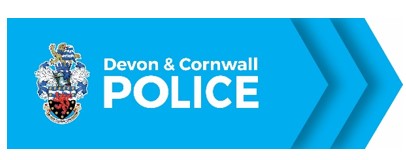
You can use the Community Intelligence Portal to share information that will assist Devon & Cornwall Police in taking action to protect the vulnerable, prevent harm and pursue offenders.
Please consider if the portal is the appropriate way of reporting if the information you are providing is time critical. Always call 999 if there is an emergency, a crime is in progress, someone suspected of a crime is nearby, when there is danger to life or when violence is being used or threatened. If you want police to attend an address or speak to someone or report a crime on behalf of a client or yourself or your organisation, please dial 101. This link will assist you: www.devon-cornwall.police.uk/contact/af/contact-us-beta/contact-us/report-crime-incident-suspicion
Please remember that the Partner Agency Online Portal isn’t a referral form and does not replace any pre-existing referral or statutory safeguarding process like a MACE referral, an adult or child safeguarding concern. We are asking you to carry out your own organisational safeguarding process to protect your clients or report an incident or crime to Police where the circumstances say you should do so via 101 or 999.
We also want you to tell us when you have information about suspected criminal activity or exploitation, but it doesn’t reach the threshold for a crime, incident or referral. Like a suspicion that Organised Crime Groups are operating in your area, information on suspicious premises, transactions, vehicles, behaviour or people. www.devon-cornwall.police.uk/pais
| 999 | 101 | PAIS |
|
If you or someone else is in immediate danger, or if the crime is happening right now. Example: There’s a shed burglary happening right now. |
Where police attendance or a crime number is required, such as reporting a missing person, an incident which is going to happen imminently or to report that you, (or someone you represent) has been a victim of a crime. Example: A service user’s shed was burgled yesterday. Or, you have information about a suspect for a crime. |
For sharing partnership information which isn’t a report of a crime or incident but which helps identify offenders and bring them to justice. Information that will help police protect people and property, prevent crime or prevent disorder. This shared information will help create a picture and understanding of crime, harm and threat that will enable police and partners to act. Example: A service user has told me information about who’s responsible for a spate of shed breaks. You hear that there is a new county line operating in your area. |
Police processing of PAIS information
Reports made to the police are not transactional in nature. For example each individual report of suspected drug dealing will not necessarily result in an officer being dispatched. Rather, information is combined together, corroborated and assessed against policing priorities. Resources are then allocated proportionately to tackle a given risk area. It might be that a report of drug dealing is linked to an ongoing operation so is passed to the relevant team. Alternatively, the local Neighbourhood Team might be made aware, or the information used as a piece of the jigsaw to build a broader picture of drug distribution. Because the type and extent of ‘action’ taken is as broad and varied as the reports received, it is not possible to provide feedback on how much ‘action’ has been taken.
The connection between the person providing intelligence information and those acting on it is intentionally broken. Each piece of intelligence is graded using a national framework. This relates to the reliability of the source, how they know the information and whether there are any specified handling conditions/sensitivity. Intelligence reads as snippets of sanitised text, with a grading such as ‘2AP’ (Intel directly known to an untested source, no handling conditions) or 1CC (Intel known indirectly to a reliable source, handling conditions apply). As a result and by design, it is impossible for those acting on intelligence to know whether it came from social services, a police employee, a member of the public, or elsewhere. Likewise, it’s not possible to clarify whether intel has come from an individual, organisation, CCTV camera, etc.
Please work through the questions on the PAIS form, which are designed to help us get the information to the right people in our organisations to build the picture on threat, harm and risk, so that we can take action: www.devon-cornwall.police.uk/pais
More information
Please follow your organisation’s safeguarding processes if you suspect county lines, cuckooing, criminal or sexual exploitation.
Devon & Cornwall Police website general information on county lines and other threats like domestic abuse, modern slavery: www.dc.police.uk/countylines
Contact information: www.dc.police.uk/contact
Reporting anonymously via Crimestoppers: crimestoppers-uk.org
Crimestoppers county lines info: crimestoppers-uk.org/keeping-safe/community-family/county-lines
The Crimestoppers site for young people to find information and report anonymously: www.fearless.org/en